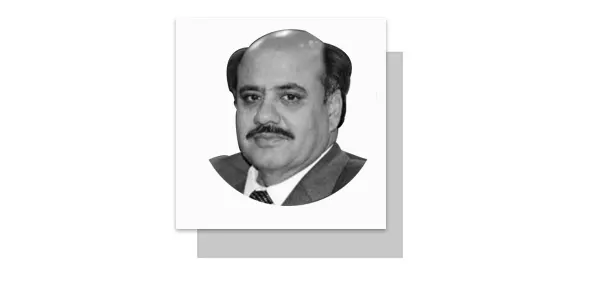THE current trends in international politics are not conducive to peace and stability.
The ongoing Ukrainian war, Modi’s bruised ego, increasing anarchy in the Middle East due to Israel’s militaristic designs, President Trump’s transactional foreign policy, the significant rise in global defence spending and disruptive emerging technologies are all contributing to increased volatility, uncertainty, complexity and ambiguity in international politics. These factors pose potential risks that demand our attention and engagement.
President Trump’s plans for a homeland missile defence shield (Golden Dome), viewed as an attempt to acquire first strike capability (the ability to launch a pre-emptive nuclear attack), will accelerate the arms race between Washington, Beijing and Moscow and obstruct the constructive nuclear arms control initiatives. Indeed, the arms race between the great powers will compel the regional actors, especially India and Pakistan, to revamp their military doctrines.
The United States’ Cold War-like foreign and strategic policy expanded the North Atlantic Treaty Organization (NATO) in the Euro-Atlantic geostrategic setting. It has sprouted QUAD (Australia, India, Japan and the United States), I2U2 (India, Israel, the United Arab Emirates and the United States) and AUKUS (Australia, the United Kingdom and the United States) in Asia-Pacific’s transforming geopolitical environment.
The great powers competition and proliferating conflicts at both the global and regional levels are rejuvenating security alliance politics. On June 24, 2025, Britain’s Prime Minister, Keir Starmer, reiterated the significance of military alliances. He said, “We live in a very volatile world, and today is about the unity of NATO, showing that strength.” European leaders are wary of the Kremlin’s military muscle and President Putin’s strategic ambitions. Currently, no European State is militarily capable of competing with Russia. Therefore, the European states need a vibrant NATO to solidify their defensive perimeter. The unending war between Russia and Ukraine has exposed the limits of Europeans. They realize that without the US assistance, they are unable to defend themselves. Therefore, they submitted to President Trump’s demand to increase NATO’s defence budget, despite their financial constraints.
During last month’s NATO Summit at The Hague, Netherlands, its members demonstrated their unity and resolve by agreeing to a higher defence spending goal of 5% of GDP by 2035. This is a significant jump worth hundreds of billions of dollars a year from the current goal of 2% of GDP. The Hague Summit Declaration issued by the NATO Heads of State and Government participating in the meeting of the North Atlantic Council in The Hague on June 25, 2025, states, “We reaffirm our iron-clad commitment to collective defence as enshrined in Article 5 of the Washington Treaty – that an attack on one is an attack on all. We remain united and steadfast in our resolve to protect our one billion citizens, defend the Alliance and safeguard our freedom and democracy.”
The United States is capable of defending itself without the assistance of the Europeans and Canadians. However, the war on terrorism and two-decades Operation Enduring Freedom in Afghanistan, where the United States led a coalition of NATO and non-NATO forces, reveal the efficacy of NATO for the United States military pursuits globally. Hypothetically speaking, if the last month’s war in the Middle East escalated after the US strikes on Iranian nuclear facilities and Iran’s retaliatory strike on the US base in Qatar, the 31 NATO members would be automatically dragged into the Middle Eastern conflict. The United States might be compelled to invoke Article 5 of the Washington Treaty which states that an attack on one member is an attack on all, potentially leading to a wider conflict.
Although China and Russia have refrained from forming a military alliance with like-minded states, American strategic pundits are warning about the rise of QUAD, comprising China, Iran, North Korea and the Russian Federation. This QUAD does not exist. Neither China nor Russia supported Iran militarily during the recent 12-day war in the Middle East. Conversely, Israel and the United States cooperatively attacked Iran. During the Iran and Israel war, the I2U2 members, except the UAE, openly assisted Israel. Iran is a member of the Shanghai Cooperation Organization but it has not received any assistance from the Organization. The SCO works by consensus; therefore, India is in a position to veto any initiative against Israel to support Iran by the Organization’s members. To conclude, the Alliance’s formation may contribute to establishing a balance of power among the great powers, but it does not guarantee peace and stability. The efficacy of military alliances is debatable; yet, the dynamic forces of the anarchical international society are driving states towards alliance politics.
—The writer is Prof at the School of Politics and IR, Quaid-i-Azam University, Islamabad.
(jaspal_99@hotmail.com)


















